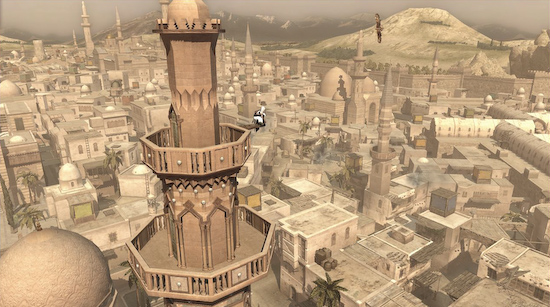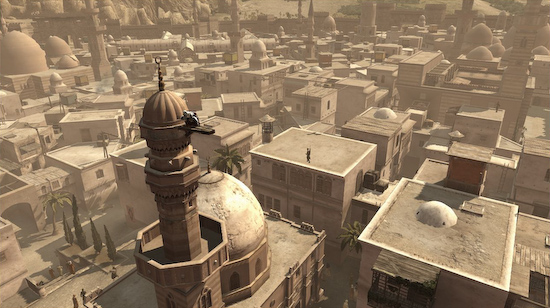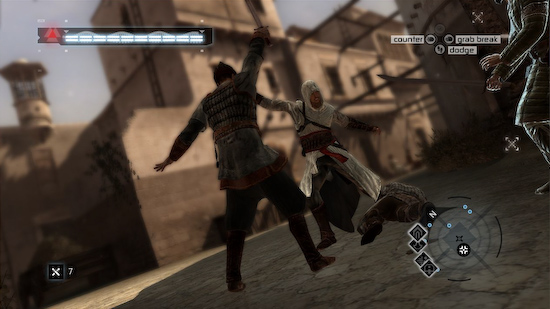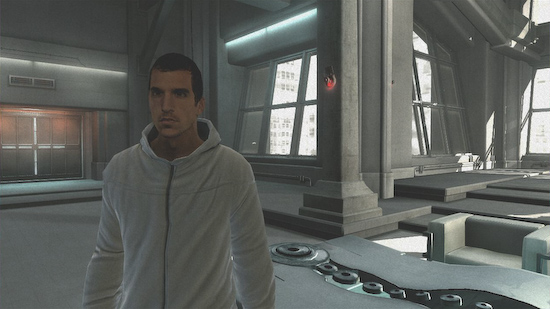AUTHORS
CATEGORIES
- Airsoft (2)
- Austin (8)
- Books (9)
- Cooking For Engineers (20)
- Credit Cards (2)
- Current Events (9)
- Deals (4)
- Dining (37)
- Fanpop (4)
- Food (808)
- Games (5)
- Hairy (6)
- Kitchen Gear (7)
- Life (24)
- Miscellaneous (6)
- Movies (15)
- Orthogonal Thought (6)
- Personal Computers (10)
- Photography (158)
- Rant (9)
- Ruby on Rails (2)
- San Francisco (5)
- Soap Making (5)
- Television (11)
- Texas (1)
- Things We Like (11)
- Travel (11)
- Wear or Not (1)
- Web 2.0 (9)
- What I Ate (861)
- Wikipedia (5)
- Windows 10 (3)
- Windows Mobile (1)
- WordPress (1)
ARCHIVE
- September 2018 (1)
- September 2017 (1)
- March 2017 (1)
- September 2016 (2)
- August 2016 (2)
- September 2015 (1)
- November 2014 (1)
- August 2014 (1)
- January 2014 (1)
- September 2013 (1)
- December 2012 (1)
- November 2012 (3)
- September 2012 (1)
- August 2012 (2)
- June 2012 (2)
- February 2012 (1)
- January 2012 (4)
- December 2011 (4)
- October 2011 (2)
- September 2011 (5)
- August 2011 (1)
- July 2011 (2)
- April 2011 (2)
- February 2011 (5)
- January 2011 (12)
- December 2010 (37)
- November 2010 (30)
- October 2010 (25)
- September 2010 (30)
- August 2010 (32)
- July 2010 (34)
- June 2010 (31)
- May 2010 (35)
- April 2010 (35)
- March 2010 (33)
- February 2010 (34)
- January 2010 (33)
- December 2009 (30)
- November 2009 (31)
- October 2009 (30)
- September 2009 (31)
- August 2009 (34)
- July 2009 (34)
- June 2009 (34)
- May 2009 (33)
- April 2009 (32)
- March 2009 (42)
- February 2009 (38)
- January 2009 (57)
- December 2008 (40)
- November 2008 (30)
- October 2008 (33)
- September 2008 (22)
- August 2008 (5)
- July 2008 (5)
- June 2008 (11)
- May 2008 (13)
- April 2008 (10)
- March 2008 (29)
- February 2008 (18)
- January 2008 (28)
- December 2007 (1)
- November 2007 (4)
- October 2007 (5)
- September 2007 (10)
- August 2007 (14)
- July 2007 (10)
- June 2007 (9)
- May 2007 (21)
- April 2007 (21)
ACTIONS
Assassin's Creed
Posted 16 December, 2008 at 11:26pm by Michael Chu(Filed under: Games)
I just finished playing the PC version of Assassin's Creed. In this game you play Desmond Miles who has been kidnapped by an evil pharmaceutical company in the near future. This company, Abstergo, has created a device called the Animus that is capable of simulating events (memories) coded in the DNA of the user. When Desmond uses the machine (he is actually forced to), he relives the memories of his ancestors - specifically those of Altair (pronounced al-ta-ear), assassin during the Third Crusade. Apparently, the scientists at Abstergo are looking for something and trying to recover this information from Desmond's mind. Unfortunately, the hereditary memory that they need to access is buried pretty deep, so we (the game player) gets to unlock memories in such an order that the story of Altair and the Brotherhood of Assassins. The story unfolds primarily in the world of Altair with occasional interruptions as we're yanked back into Desmond's time due to Animus problems and events occurring at Abstergo. As the game unfolds it becomes more clear how Abstergo and the memories they are so interested in retrieving are connected.

I played the game using a mouse and keyboard since I don't have a game pad for my PC. (I don't play enough games on the PC that work better on game pad to justify purchasing one.) I found the controls to be easy to learn and manipulate during the game. The WASD keys are used to move Altair (and Desmond). Controls are divided into two main categories - high profile (hold down right mouse button) and low profile. Pressing Left-Shift causes Altair to use his hand to gently push people away (low profile), ram right through them (high profile), grab them during a fight, or grabbing onto something while falling. Pressing and holding Spacebar alters how Altair uses his feet: walking in a way to blend in with the crowd (low profile) or sprinting and jumping (high profile). Left-Clicking causes Altair to attack with whatever weapon is selected. He's able to use a short blade (which allows him to deal with many opponents at once), throwing knives, a hidden blade for assassinations, a long sword, and his fists (vital for beating up people you need to interrogate for information). When using the hidden blade, you can perform both low profile and high profile (by holding down the Right Mouse Button) kills. Low profile assassinations usually involve sinking the blade into someones heart from the back, side, or front and walking away. A high profile assassination is quite dramatic with Altair leaping into the air and thrusting his wrist down into the neck of the target (similar to how Brad Pitt's Achilles killed in the Wolfgang Petersen version of Troy - except with a hidden blade instead of a short sword).
Much of the game involves running around large ancient cities with the right mouse button (high profile - so Altair will run) and spacebar (so he'll sprint and jump) down. Altair is capable of leaping from rooftop to rooftop, executing parkour style moves when necessary. It's actually pretty intoxicating covering long distances across ancient Jerusalem running full speed and leaping across alleys, swinging from rafters, and tumbling into an assassination with your hidden blade.

The game can be played fairly quickly by completing the minimal number of investigations required (usually two or three) to proceed to the assassination that needs to be completed to progress to the next stage in the game. As a completionist, I completed all of the possible investigations (I think it's ten) before each assassination. The investigations involve pickpocketing, eavesdropping (the easiest task to perform - just sit down and focus on the target), taking out guards or archers for another member of the Brotherhood, and other such tasks to gain information about the target or methods of entry or exit. Besides the choice of completing the bare minimum or fully investigating each target, you can choose to perform all the missions in complete stealth (which is what I started off doing) or run around in full view and kill anyone who stands in Altair's way. I ended up handling most of the game with a style somewhere in between these extremes - running across rooftops performing low profile kills of the guards up there to keep them from hindering my progress. Besides those kills, I only engaged in combat when necessary (which was often enough when saving citizens being accosted by overzealous soldiers).

Like most games of this kind, you have a health bar which lowers as you take damage from being struck in a fight or falling too far of a distance. When the health bar goes to zero, you can get hit one more time and then you die. Dying requires you to start over from the last auto save point which happens very often - pretty much any time you advance in the game (even in the slightest). The cool thing about the way the game handles damage and death is the idea that this only happens in Desmond's simulation. Altair never actually got hurt (certainly he never died because how could Desmond eventually be born if Altair never survived - also how could he accomplish whatever historical event that Abstergo is looking for if he's dead) so the Animus treats damage as desynchronization from the ancestral memory being simulated. Desynchronize enough ("death") as the Animus forces Desmond to try again from the last fully recovered memory (the last checkpoint).

The world is beautifully rendered and the cities quite complex. When the story begins you can only access parts of each city, but by the end of the game Altair can fully roam all of ancient Jerusalem, Damascus, and Acre. The sound design is also quite good with good voice acting throughout the game, decent background and ambient noise, and well placed music cues. My one big gripe is that the game does not have subtitles for the dialogue. Sometimes I play games at night and don't want to wear headphones, so the volume gets turned down quite a bit. The dialogue can be a bit hard to understand in these cases (and the game plot and story is predominantly driven by monologues delivered by Altair's master, bureau chiefs, and victims). My solution was to turn up the dialog all the way and the music and other sound effects to less than half volume. Then I could keep the volume on my speakers up a bit and have an easier time with the dialogue.The only other gripe that I had with Assassin's Creed was that it crashed my Windows Vista Ultimate once in a while. When I say crashed - I actually mean that the system hangs - nothing moves, no response to the mouse, the numlock on the keyboard does toggle on and off, but I can't get back to Windows (even when playing in Windowed mode - which the game defaults to… you have to hit Alt-Enter to go full screen and back). I'm one of those lucky ones who haven't had any problems with Windows Vista with any of the three machines I've built using the new (much maligned) operating system. Assassin's Creed is the only time I've ever had to reboot my computer using the reset button (and I run a fairly heavy stack of software).
Other than those two issues I have, I think Assassin's Creed is an excellent game and well worth playing through.